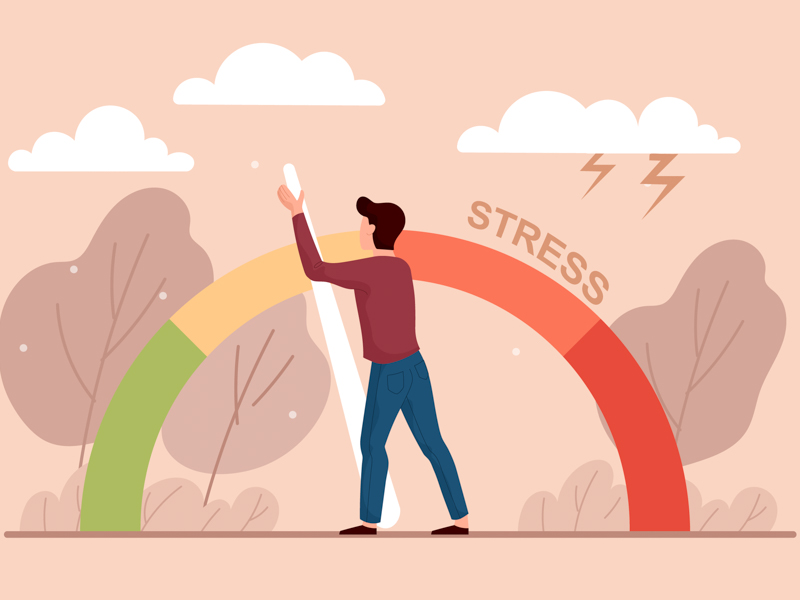Feeling tense? Try a re-frame of mind

Stress got you down? The way we think about ourselves, the world and the people around us can have a major impact on mood.
It’s easy to get caught in a cycle of dwelling on the negatives in our lives, but if we can learn to break that cycle, we’ll begin to experience a healthier version of ourselves. When you catch yourself thinking negatively, try re-framing your thoughts by examining the facts of your situation. You might ask yourself, "Is this true?" or "Is this helpful?"
You might even imagine how you would respond to a friend who was having the same thoughts. Most of the time, you’ll come to realize that there aren’t enough facts to support the negative thoughts that you believe to be true.
For example, imagine you get cut off in traffic on I-55. You're irritated and quickly curse the person who did it. When you catch yourself being irritated, you might imagine why the person cut you off. Maybe they didn't see you in their mirror or have a family emergency they are trying to get to quickly. You could also ask yourself about the truth and helpfulness of your thoughts. Is the way you are thinking beneficial? Is it honest? Taking a moment to process and reframe your thoughts often leads to more self-awareness and helps us focus on the things that are within our control.
By shifting your perspective and challenging your thoughts, you might notice yourself thinking differently about situations in the future, resulting in healthier self-talk. Creating more positive self-talk is also important when it comes to improving self-esteem and creating more positive interactions with those you encounter.

Dr. Danny Burgess, associate professor in the Department of Psychiatry, gives the following tip to anyone seeking to improve their self-talk: “One way to improve healthy self-talk is to see yourself, other people, and the world with a sense of curiosity instead of judgment. When you can approach life with a curious mind and not be quick to make a judgment, you will find a more positive and productive way of thinking that opens up opportunities to better understand yourself and the world around you.”
If you find this tip helpful, join the Office of Well-Being and Dr. Burgess for a talk on tips for mental resilience on 11 a.m. to noon on Tuesday, August 16. This event will take place both in person in classroom 3A and online via WebEx.


